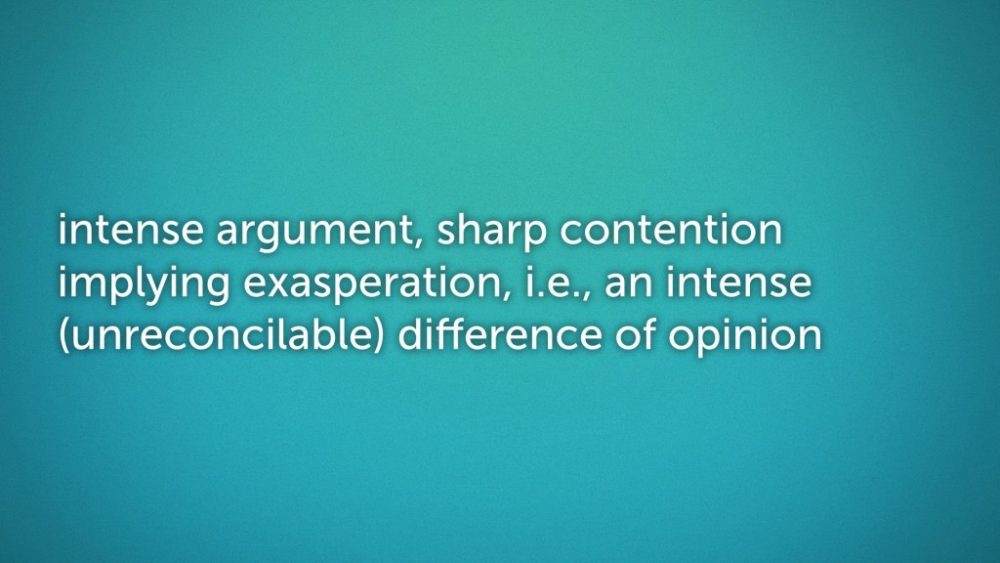
If you’ve read much of my writings about the Bible, you know there are times I feel compelled to dive deeper into the original words used and what was really being said. I fully believe that compulsion comes from the Holy Spirit. I received that nudge this morning. Allow me to share.
In Acts 15:39, Paul and Barnabas had a sharp disagreement. So sharp that they parted ways. It’s important to note that both continued on in their joint mission to uplift and instruct the churches throughout Asia Minor. Neither quit because he didn’t get his way.
How many times have you read this passage and thought this was just an average disagreement? That’s definitely not the case. The word translated to “sharp disagreement” is paroxsmos. The word has varied meanings, but they are all very similar. As used in Acts 15:39, it means intense argument, sharp contention implying exasperation, i.e., an intense (unreconcilable) difference of opinion.

This wasn’t just a disagreement between these partners in ministry. This was a battle. It’s unlikely that physical blows were landed, but with the word used, I imagine verbal blows were plentiful.
Both man knew he was right, and neither was backing down. Exasperated. Intense. Their difference could not be reconciled, so to preserve any relationship at all, they separated. Can’t you just feel it?
Chest tight,
words loud,
hands thrown up,
backs turned.
As I read the word study further, I noticed that this word is translated in another verse. Hebrews 10:24 translates it as motivate.
Do you get that? The same word used to describe the intense, irreconcilable disagreement between Paul and Barnabas was used to tell believers to motivate one another. Other versions have translated this as stir up, spur, stimulate or incite, provoke, and encourage.
To me, some of the translations have led to a gross misunderstanding of what is really meant by the author of Hebrews. We’ve taken it to mean we’re to gently nudge or urge one another to do the right things. I think the King James and Amplified Versions come closest to what was meant originally.
As believers, we are to provoke one another to acts of love. We’re to stimulate or incite one another to good works, the right things, the best ways. Not suggest or mention. We’re supposed to get kinda pushy about nudging one another to live in obedience to God, using the same passion that Paul and Barnabas employed when they argued about John Mark.
Here’s the problem, though. In the Church of the 21st century, at least in the United States, we don’t like argument. We shrink from debate. We balk at provocation. We’re supposed to live in unity at all costs, right?
Are we really?
Time is short, my friend, and growing shorter every day. It’s time to get serious about obedience to God. We must remember that God will never be in opposition to His Word, and when we think He is, we need to look deeper into the original languages.
It’s time to learn what the Word says
and move into alignment with it.
It’s time to have some tough conversations with the believers we get to speak into. It’s time to provoke them into leaving self and world behind to step into kingdom-mindedness. It’s time to incite them to do the right things even when it’s awkward and uncomfortable. That means it’s time to be ready to hear that same provocation and incitement spoken to us.

